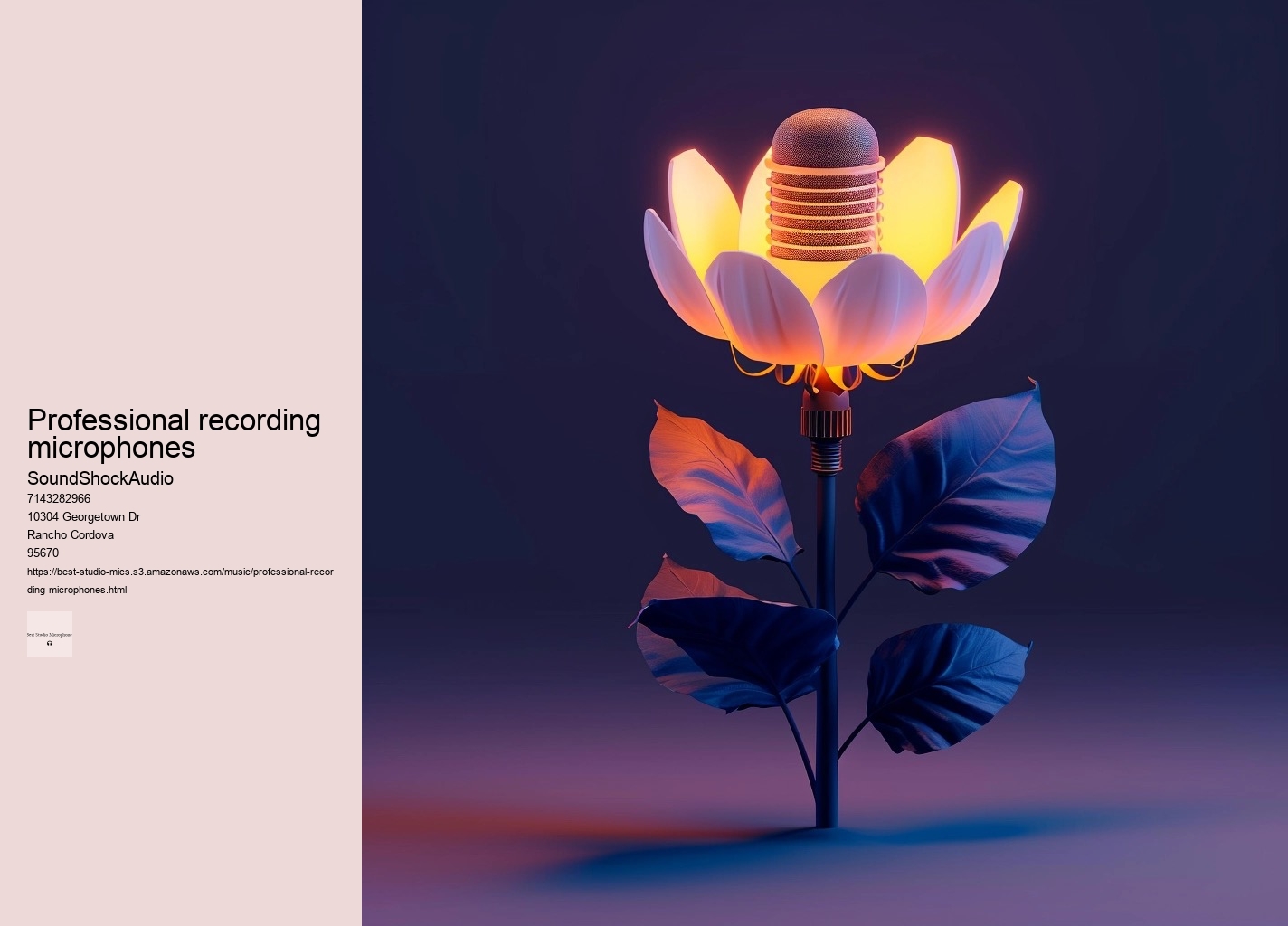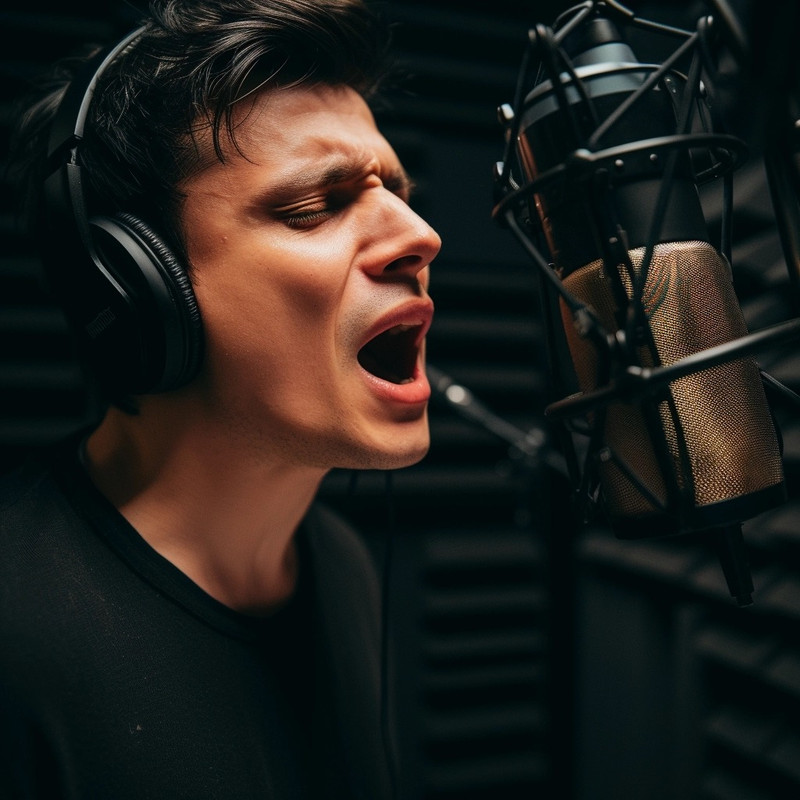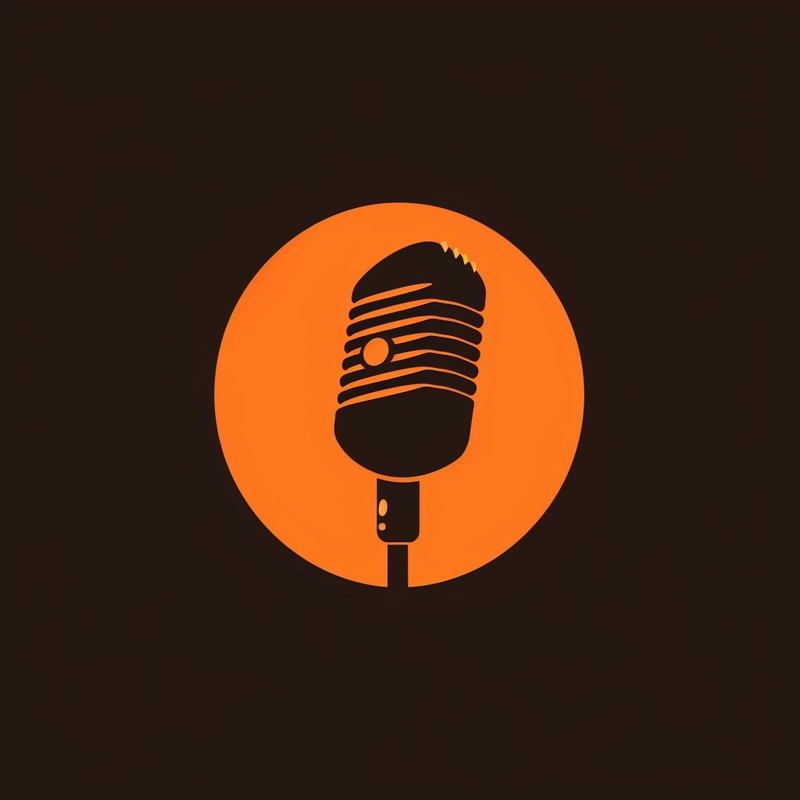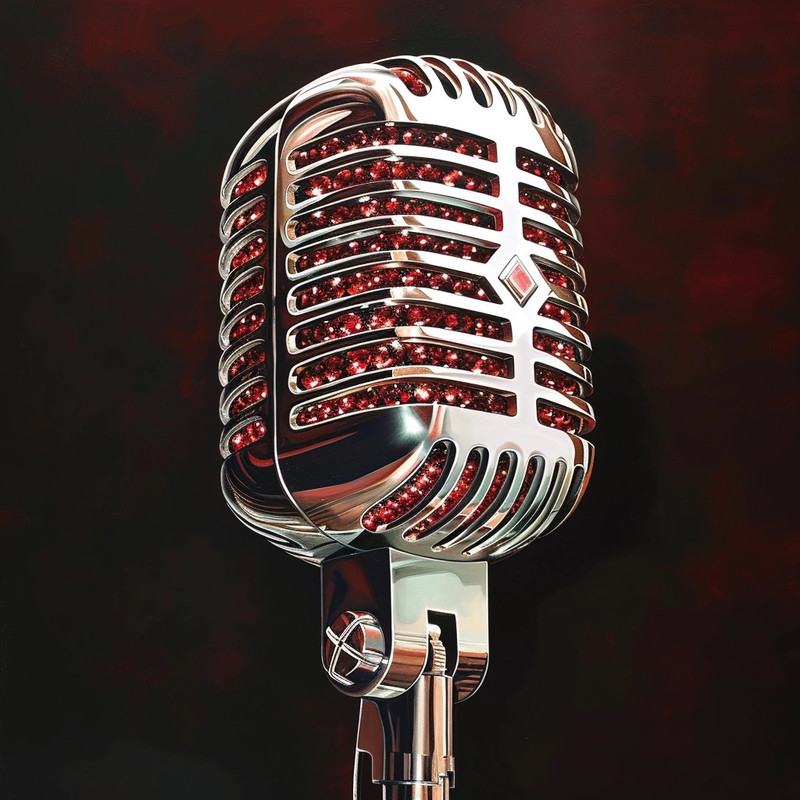

Its cardioid polar pattern ensures focused audio capture while effectively minimizing background noise. This is the kick drum microphone if you don't have one. You should make sure that your recording equipment is up to the task if you are going to purchase this microphone.
Bass traps in corners tackle low-frequency build-up, which can otherwise muddle your recordings with boomy or muddy characteristics. There is almost no proximity effect. To find out which microphone to buy, check out the best studio microphones on SoundShockAudio..
You might consider a USB microphone if you are recording on a computer in your home studio. These mics are perfect for that.
Find the top Studio Microphones on Amazon's Best Sellers. Yet, even the mightiest microphone requires faithful allies to truly shine.
The polar pattern of your microphone dictates how it picks up sound from different directions—whether it's omnidirectional, bidirectional, or unidirectional (cardioid). However, certain recording scenarios might benefit from mics with tailored responses to emphasize desired tonal qualities. Whether aiming for crisp vocal tracks or immersive room ambiances, choosing the right polar pattern becomes as important as selecting any other piece of equipment in your studio arsenal.
The microphone has a large, low-mass diaphragm which provides a wide frequency response for picking up vocal nuances. The PGA181 – We're a microphone company, and we want you buy many mics.
This mic requires +48V Phantom power. In summary, while top-notch microphones are crucial for flawless recordings, it's paramount not to overlook the importance of a high-quality audio interface.
At their heart is a thin strip—or ribbon—of aluminum that vibrates within a magnetic field to generate electrical signals. The e 609 is also designed to be durable, vibration-free and hum-compensating.
Condenser microphones are better for recording vocals than dynamic mics. The Beta 52A is a great option if you already have one for your bass guitar. The e-609 is different because it's a "less-is-more" kind of mic.
Lastly, budget considerations are important but investing in a higher-quality microphone may yield long-term benefits through superior sound clarity. Continue to use this website and you consent.
Look at frequency response tailored to your needs.4. The BBC was unable to afford the high-priced RCA 44 units, so they wanted to mimic the sound of those in the USA.
Conversely, distance creates space and airiness, often preferred for capturing natural acoustic instrument tones. The C12 is a very similar product, but there are some notable differences.


It's crisp, clean, and of high quality. He is the host of AppleInsider podcast, your guide to tech gadgets, recording equipment, and video production! Riverside's Remote Audio Recording Software allows you to record high-quality audio.
It's best used for recording guitar amps or snares. RSPE Audio offers studio microphones at guaranteed lowest prices.
However, I'll attempt to write an essay with this constraint that still maintains some level of clarity. Selecting the best studio microphone for professional-grade recordings hinges on understanding this delicate interplay between sensitivity and fidelity.

Rich text allows you to format and add headings, paragraphs and blockquotes all at once, rather than having to do it individually. However, they might not be the first choice when delicate nuances or higher frequencies are sought after due to their generally less detailed frequency response compared to condenser microphones. This microphone records high, mid, and low frequency sounds in a clear, detailed manner, so that you can capture a wide range of vocal styles.
It’s not merely about having an excellent microphone but also about ensuring that each stage in the signal chain complements and enhances its performance. This latest model has a USB interface which eliminates the need for an audio interface.
It is not subtle but it works. IK Multimedia is a master at finding innovative and new ways to increase the capabilities and tricks that their products can offer.
After adding a class to the rich text element, using the "When within" nested selection system, headings, paragraphs and blockquotes as well as images, figures and figure captions may be styled. They are particularly adept at handling complex midrange frequencies where much musical expression resides.
It's particularly esteemed by engineers looking to imbue electric guitar recordings with vintage allure or add velvety depth to brass ensembles. Although USB mics offer convenience, they typically fall short in delivering the nuanced audio fidelity required for professional-grade recordings. It is able to cut through the mix and create a driving rhythm.
Lastly, headphones serve as both scout and guardian in this realm—a means to intimately monitor and critique sounds as they come to life while keeping external noise at bay. Don't overlook build quality and reliability; a good studio microphone should withstand frequent use while maintaining consistent performance over time.
At the zenith of this audio pantheon stands the Neumann U87, an emblematic staple whose versatility and pristine clarity have rendered it indispensable in countless studios. In summary, while deliberately seeking out the least probable options can be an interesting exercise in creativity or contrarian thinking—it's antithetical when aiming to uncover top microphones capable of delivering studio-quality recordings without compromise.
Such spaces are often acoustically untreated, meaning microphones with a cardioid polar pattern can be ideal as they exhibit resilience against unwanted ambient noises and echoes which may tarnish clarity. A Neumann U47 can cost up to $10,000.
Most artists prefer using high-quality condenser microphones for studio recording due to their sensitivity and ability to capture a wide range of frequencies and nuances in the voice. Popular choices among professionals include the Neumann U87, known for its warm, clear sound, and the Shure SM7B, favored for its versatility and performance in capturing both vocals and instruments.
Frank Sinatra famously used several types of microphones throughout his career, but he is most often associated with the Neumann U47 and the RCA 44 ribbon microphone. These microphones were known for their warm sound and ability to capture the nuances of his voice, contributing significantly to the quality of his recordings.
Kurt Cobain used various microphones throughout his recording career, but one notable microphone for studio recordings was the Electro-Voice RE20. This microphone is known for its versatility and ability to handle high sound pressure levels, making it suitable for capturing the dynamic range of Cobain's vocals and guitar.